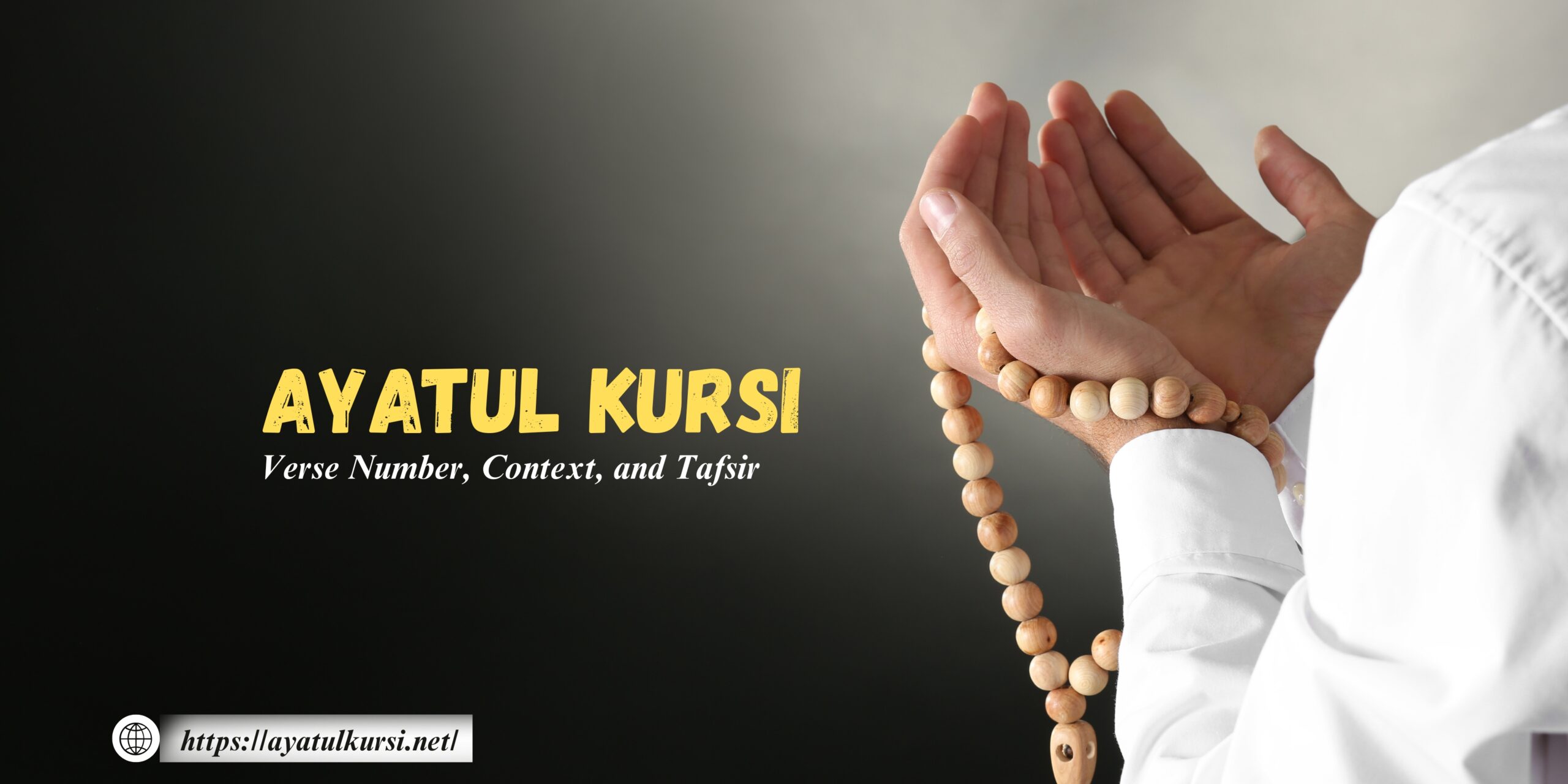
Among the treasures of the Quran, Ayatul Kursi (Arabic: آية الكرسي) is one of the most powerful and revered verses. Found in Surah Al-Baqarah (2:255), it is often called the Throne Verse because it magnificently describes Allah’s sovereignty, boundless knowledge, and eternal authority. Muslims worldwide turn to it for protection, reassurance of faith, and as a daily reminder of Tawheed (Oneness of Allah).
We will explore the verse number of Ayatul Kursi, its background, Tafsir Ayatul Kursi from classical and modern scholars, and its significance in a Muslim’s daily life.
Table of Contents
Where is Ayatul Kursi in the Quran?
Surah: Al-Baqarah (Chapter 2)
Verse Number: 255
Arabic Name: Ayatul Kursi (The Throne Verse)
It appears in a section of Surah Baqarah that discusses guidance, charity, and the foundation of belief. Its placement is no coincidence—Ayatul Kursi in quran is it emphasizes that after guidance, all authority ultimately belongs to Allah alone. This positioning enriches the Tafsir of Verse 255 Surah Baqarah and highlights Allah’s supremacy over all affairs.
Ayatul Kursi Meaning in Brief
Without quoting the full text, the verse proclaims:
- Allah is Ever-Living (Al-Hayy) and Self-Sustaining (Al-Qayyum).
- He does not tire, nor is He overtaken by sleep.
- All that exists in the heavens and earth belongs to Him.
- His knowledge encompasses every hidden and visible thing.
- The Kursi (Throne) symbolizes His power and authority extending over the heavens and the earth.
- Maintaining creation does not burden Him in the least.
- He alone is the Most High (Al-‘Aliyy) and the Supreme (Al-‘Azim).
Tafsir of Ayatul Kursi (In-Depth Explanation)
The Tafsir of Ayatul Kursi has been documented extensively by scholars like Ibn Kathir, Al-Qurtubi, and modern commentators. Here are the key highlights:
1. Emphasis on Tawheed
The entire verse is a declaration of monotheism. Every phrase sets Allah apart from human limitations and dependence.
2. Allah’s Supreme Attributes
Al-Hayy: His life and existence are beyond time, unaffected by death.
Al-Qayyum: Every atom of creation relies on Him for survival.
3. Freedom from Imperfections
Sleep, hunger, or rest are human limitations. Allah is beyond all weakness or fatigue.
4. Knowledge without Boundaries
The Tafsir of Verse 255 Surah Baqarah highlights how Allah’s knowledge is absolute—it includes past, present, future, the visible world, and the unseen.
5. The Kursi (Throne) Explained
Scholars interpret “Kursi” as an expression of Allah’s dominion and sovereignty. It is described as distinct from the greater Throne (‘Arsh), signifying infinite authority.
The Tafsir Ayatul Kursi also emphasizes the spiritual significance of the verse as both a theological foundation and a practical remedy for fear, doubt, and weakness.
Ayatul Kursi Urdu Translation & Tafsir:
For Urdu-speaking audiences, classical scholars have preserved rich works of Ayatul Kursi Urdu translation & tafsir. These interpretations make the verse more accessible, helping believers connect with its depth in their native language. Urdu translations are widely used in South Asia for study circles, madrasas, and personal reflection, ensuring the message of Ayatul Kursi spreads across every level of society.
Through these translations, Muslims grasp not just the literal meaning, but also the nuances explained by traditional commentaries—bringing deeper appreciation of Allah’s power and authority.
Spiritual Significance of Ayatul Kursi:
Beyond linguistic and scholarly analysis, the verse is central in a Muslim’s spiritual life. Authentic traditions describe its benefits when recited consistently:
Protection during sleep—reciting at night creates a shield until morning.
After Salah (prayer)—reciting Ayatul Kursi after obligatory prayers strengthens faith and offers divine guardianship.
Barrier against evil whispers (Shaytan)—one of the strongest defense verses for believers.
Reminder of faith (Iman)—Anchors the heart in the belief that nothing is beyond Allah’s awareness and control.
Daily Practice of Ayatul Kursi:
Muslims across the globe recite this verse:
- In morning and evening adhkar (remembrances)
- While traveling for safety
- Before entering sleep for protection
- As part of daily supplications for seeking peace and strength
Thus, the Tafsir of Ayatul Kursi is not only about theological reflection—it connects directly to daily practice, embodying the union of belief, remembrance, and action.
FAQ’s About Ayatul Kursi in the Quran
What is Ayatul Kursi in the Quran?
Ayatul Kursi is verse 255 of Surah Al-Baqarah, known as the Throne Verse, highlighting Allah’s supreme power and knowledge.
Where can I find Ayatul Kursi in the Quran?
It is in Surah Al-Baqarah (2:255), explained deeply in the Tafsir of Verse 255 Surah Baqarah.
What is the Tafsir of Ayatul Kursi?
The Tafsir Ayatul Kursi describes Allah’s Oneness, eternal life, unlimited knowledge, and dominion.
Is there Ayatul Kursi Urdu translation & tafsir?
Yes, many publishers and scholars have provided Ayatul Kursi Urdu translation & tafsir for Urdu readers.
Why is Ayatul Kursi the greatest verse?
Because it declares Allah as Al-Hayy (Ever-Living) and Al-Qayyum (Self-Sustaining), with knowledge over everything.
What are the benefits of reciting Ayatul Kursi?
It offers protection from harm, strengthens faith, and brings blessings when recited daily.
What does Tafsir of Verse 255 Surah Baqarah teach for daily life?
It teaches Muslims to rely on Allah’s power and protection in all matters of life.
